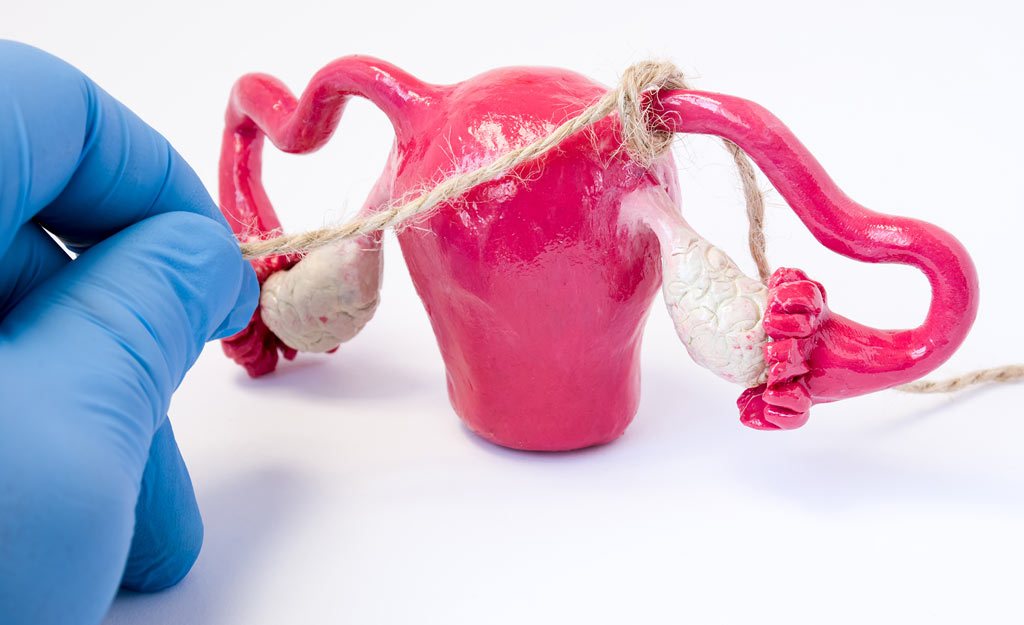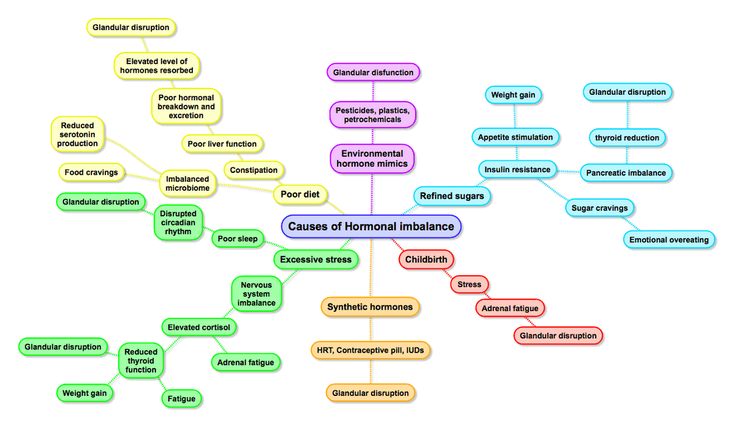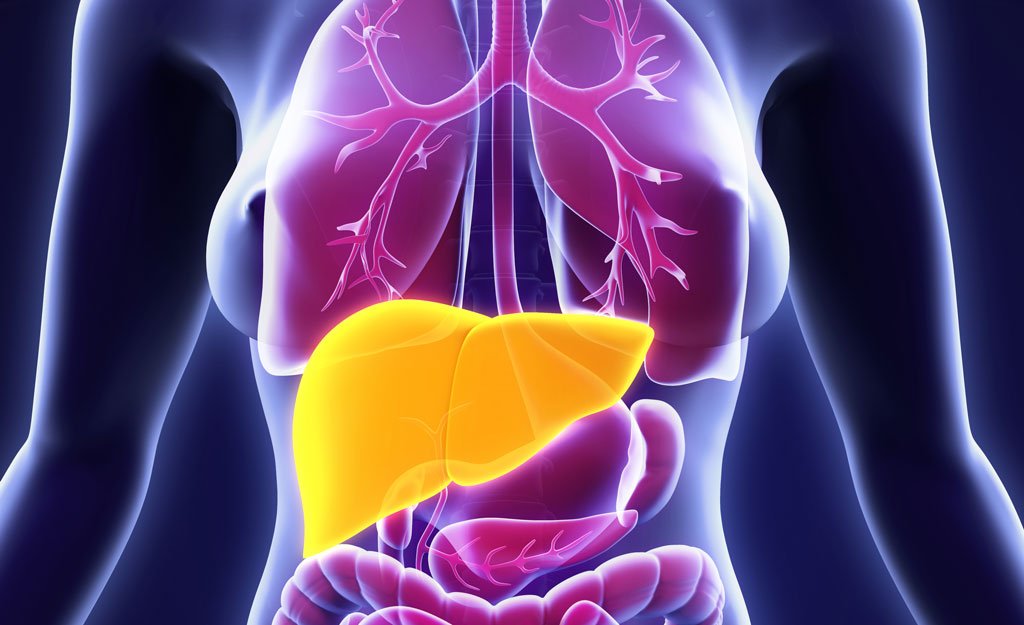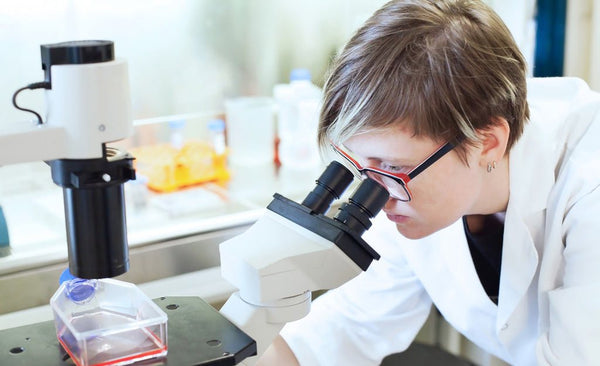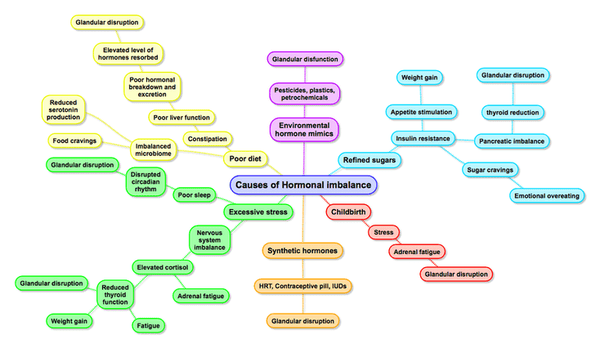Post Tubal Ligation Syndrome
Until recently tubal ligation seemed like a relatively safe and effective solution as a contraception post childbirth.

Then we started to have more and more women complain that following a tubal ligation, their hormonal issues became worse; and a raft of issues developed following the procedure. This led us to investigate further and discovered that for some women, not all - but enough to warrant concern - that a tubal ligation may not have been the best choice.
The relatively innocuous procedure seems on the surface to be a great solution to prevent pregnancy; however, it seems that the blood flow to the ovaries is semi-dependent upon the pathway of the fallopian tubes. This blood flow allows for correct oxygenation of the ovaries, as well as chemical messaging of hormones and other blood chemicals. When this blood supply is restricted, then additional hormonal issues begin to develop.
Another theory is that certain target or receptor cells that are important in the transmission of hormonal messaging are damaged or removed during the tubal ligation. These receptor cells are integral for the correct messaging of hormonal signals in the brain via the hypothalamus & pituitary axis, which controls hormone levels. So the possibility of reduced blood supply to the ovaries; and dysfunction of the receptor cells transmissions, affects the larger endocrine and hormonal system.
Several studies have shown increased menstrual difficulties post tubal ligation, especially in the age group of 20 - 29, when the blood supply is most prevalent.
Symptoms that have been reported following a post tubal ligation are listed below; however, it's important to note that these symptoms are wide and varied. It's hard to pinpoint exact symptoms. But the variety of reported symptoms suggest that the effect is systemic. (List is taken from Tubal.org.)
- Ectopic pregnancy or pregnancy (well-known risk of tubal ligations)
- Hot flashes, flushes, night sweats and/or cold flashes, clammy feeling, chills
- Bouts of rapid heart beat
- Irritability
- Mood swings, sudden tears
- Trouble sleeping through the night (with or without night sweats)
- Irregular periods; shorter, lighter periods; heavier periods, flooding; phantom periods, shorter cycles, longer cycles
- Loss of libido
- Dry vagina
- Itchy vagina - at times raw-like; can radiate from the whole area, with an absence of yeast infections
- Colour change in vaginal area (colour gets darker; darker red to purple)
- Crashing fatigue - Chronic Fatigue
- Anxiety, feeling ill at ease
- Feelings of dread, apprehension, doom
- Difficulty concentrating, disorientation, mental confusion
- Disturbing memory lapses
- Incontinence, especially upon sneezing, laughing; urge incontinence
- Prolapse of the uterus due to the rapid decrease in estrogen levels
- Itchy, crawly skin
- Aching, sore joints, muscles and tendons
- Increased tension in muscles
- Breast tenderness
- A decrease in breast mass
- Headache change: increase or decrease
- Gastrointestinal distress, indigestion, flatulence, gas pain, Irritable bowel syndrome (IBS)
- Sudden bouts of bloat
- Depression
- Exacerbation of existing conditions
- Allergies developing or increasing - (Chronic sinusitis).
- Nasal infections-necessitating antibiotics
- Weight gain
- Hair loss or thinning, head, pubic, or whole body; increase in facial hair
- Dizziness, light-headedness, episodes of loss of balance
- Changes in body odour
- Electric shock or stabbing sensation under the skin.
- Tingling in the extremities
- Gum problems and increased bleeding
- Burning tongue, burning roof of the mouth, bad taste in mouth, change in breath odour
- Osteoporosis (after several years )
- Changes in fingernails: softer, crack or break more easily
- Stabbing pains in pelvic area at the time of ovulation
- Pelvic pain
- Development of Adenomyosis
- Development of Ovarian/Tubal Cysts
- Decreased Lactation Ability
In our opinion, this information is important to be aware of, if you are considering a tubal ligation; and if you've already had a tubal ligation, to investigate if there may be a link with your symptoms.
If your issues seem linked, then there is the option to have it reversed - and hope that the circulation can be restored. Also, consider herbal options to correct the imbalance that has developed.
Happy Hormones is an option to consider in this situation.
Scientific evidence:
https://www.ncbi.nlm.nih.gov/pubmed/1510083

